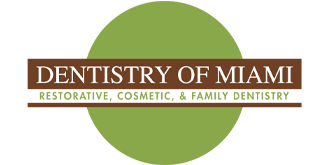Millions of Americans crawl out of bed every morning and head to the bathroom mirror. In the next few moments, they perform one of the most essential self-care processes we can do for our smile. They brush, floss, and follow this up with mouthwash to eliminate bacteria and promote fresh breath. Recent changes in social awareness have led many of these individuals to think about what they use to care for their teeth and the impact they may have on the environment.
Choosing Dental Hygiene Products For A Health Environment
Their first consideration is often the materials from which the products they use come in. It all starts with reducing the amount of packaging and limiting how much plastic is used in this packaging. After this helpful first step, it’s time to start thinking about what our products contain. It’s pretty easy to determine which dental hygiene products are environmentally safe. The labels will have ingredient lists that are easy to read, with identifiable substances typically derived from plants.
Ingredients used in toothpaste that aim for a natural formulation include:
- Tea Tree Oil – Traditional toothpaste contains a substance known as triclosan. Triclosan is a trusted antibacterial that reduces the number of streptococcus mutans in our mouths. However, studies have revealed that it can have a detrimental effect on our endocrine system. Tea tree oil has been selected as an alternative to natural toothpaste due to its inherent antibacterial and antifungal properties. Further, there has been no evidence to suggest that it contributes to the formation of super-bacteria. These bacteria are those that have become immune to common antibacterial substances.
- Magnolia Bark Extract – One major reason we brush our teeth is to avoid developing halitosis. Commonly known as ‘bad breath,’ this condition occurs for various reasons. Magnolia bark extract is an effective method of conquering bad breath and reducing tooth decay occurrences. This has become a common ingredient in sugar-free gum and toothpaste.
- Xylitol – This substance is derived from plants and has become increasingly popular in toothpaste and sugar-free gum. Studies have shown that xylitol is more than just a breath freshener; it’s antibacterial. Furthermore, it makes the surface of the teeth more difficult for streptococcus mutans, the bacteria responsible for tooth decay, to cling to.
These three substances are effective ways of addressing dental hygiene concerns. The American Dental Association, or ADA, has recognized them as being able to reduce the onset of poor oral health.
Speak With Your Dental Provider About Natural Toothpaste
Dentists are well-versed on the latest trends in healthy toothpaste and which ones are as effective as they claim. They’ll be able to provide you with lists of natural toothpaste approved by the ADA. With their consultation and the seal of approval from the ADA, you’ll be able to ensure the products you use are safe and effective for your family. Even better, you’ll be able to reduce your footprint on the planet’s surface confidently. Call for a consultation on natural toothpaste today!


